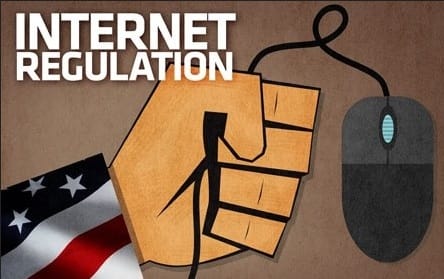In a landmark decision that has reverberated across the political and technological landscape, a federal appeals court has ruled to overturn the net neutrality regulations that were implemented during the Obama administration. This ruling has been perceived as a significant blow to the Democratic Party, which has consistently championed net neutrality as a means to ensure an open and equitable internet for all users.
Net neutrality is the principle that internet service providers (ISPs) must treat all data on the internet equally, prohibiting them from discriminating against or charging differently by user, content, website, platform, application, or method of communication. The regulations aimed to prevent ISPs from creating “fast lanes” for certain services or throttling the speed of access to particular websites, which could undermine the competitive landscape of the internet.
The court’s decision comes at a time when the debate over net neutrality remains a contentious issue in American politics. Proponents of net neutrality argue that it is essential for preserving free speech and fostering innovation, particularly for small businesses and startups that rely on equal access to online resources. Opponents, however, contend that such regulations impose unnecessary burdens on ISPs and could stifle investment in infrastructure.
The ruling has immediate implications for consumers and content providers. With the removal of net neutrality protections, ISPs may have the ability to prioritize certain types of traffic, potentially leading to a tiered internet experience. This could result in higher costs for consumers and create barriers for smaller companies trying to compete with larger corporations that can afford to pay for preferential treatment.
As the decision unfolds, various stakeholders are assessing its potential impact. Advocacy groups that support net neutrality have expressed deep concern, arguing that the ruling could lead to a fragmented internet where access to information and services is dictated by the financial capabilities of users and providers. These groups are calling for renewed efforts to reinstate net neutrality protections through legislation or further legal challenges.
On the other hand, some industry leaders and analysts believe that the ruling could encourage investment in broadband infrastructure. They argue that by relieving ISPs of regulatory constraints, companies may be more inclined to expand their networks and improve service quality. This perspective suggests that the market could self-regulate, fostering competition among ISPs to attract customers through better services rather than through regulatory mandates.
The political ramifications of the ruling are also significant. The Democratic Party has long positioned itself as a defender of consumer rights in the digital age, and this decision could complicate their narrative as they approach upcoming elections. Advocacy for net neutrality has been a rallying point for many progressive candidates, and the court’s ruling may energize both supporters and opponents of the issue as they mobilize for political action.
In the wake of the decision, there is also the possibility of legislative attempts to restore net neutrality at the federal level. Lawmakers may seek to introduce new bills aimed at reestablishing the protections that were in place prior to the court’s ruling. However, the success of such measures will depend on the political landscape and the willingness of lawmakers to address the issue amid other pressing concerns.
The future of net neutrality remains uncertain as stakeholders navigate the implications of this ruling. Legal experts suggest that further appeals could be on the horizon, and the possibility of a Supreme Court review cannot be ruled out. As the debate continues, it is clear that the issue of net neutrality will remain a focal point in discussions about the internet’s role in society and the economy.
In conclusion, the recent decision by the federal appeals court to strike down net neutrality regulations marks a pivotal moment in the ongoing debate over internet access and regulation. With potential consequences for consumers, businesses, and the political landscape, the ramifications of this ruling will likely be felt for years to come. As various stakeholders respond to the ruling, the conversation surrounding net neutrality will undoubtedly evolve, reflecting the complexities of maintaining an open internet in an increasingly digital world.



